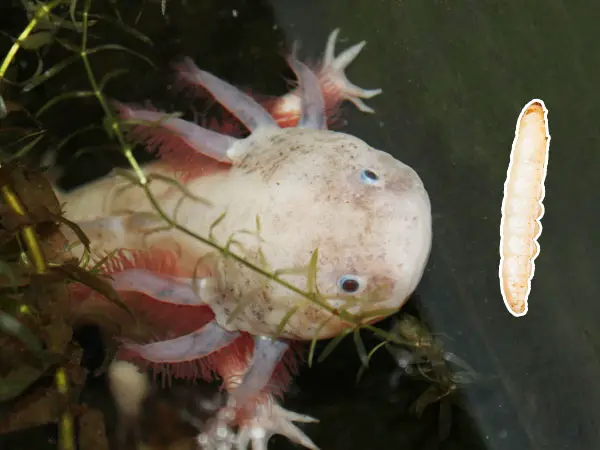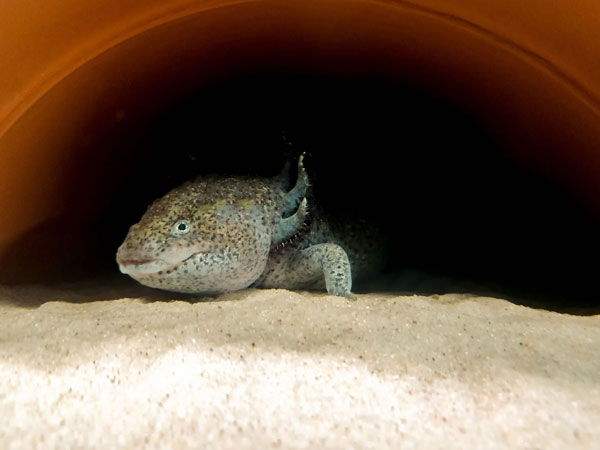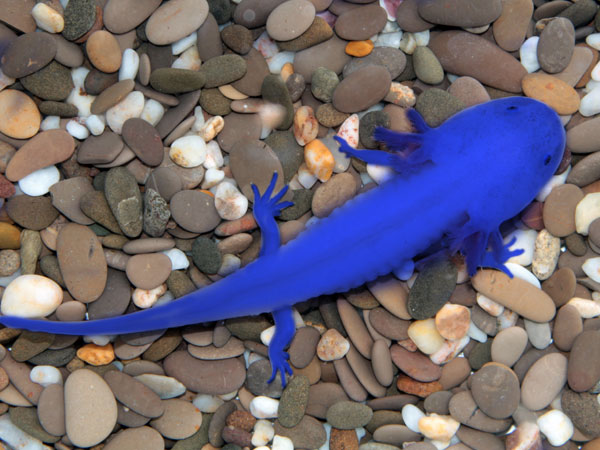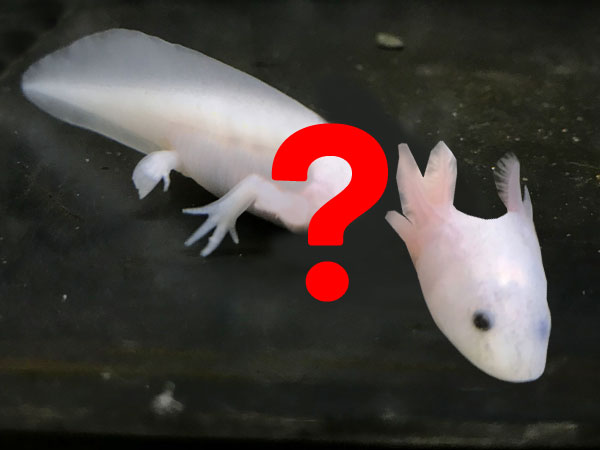Axolotls can carry various diseases just like any other pet that you can keep at home. The reason behind them getting a disease can often related to stress.
Just like with aquarium fish, you need to take care of the basic needs of your Axolotl as well.
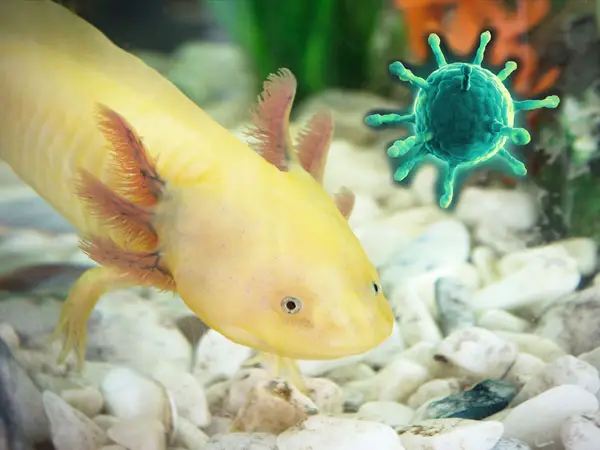
These salamanders usually get sick when their owner doesn’t know how to take proper care of them.
Not eating healthy foods, living in contaminated water and uncomfortable temperature can all make them stressed. This weakens their immune system and they will eventually get sick.
Overfeeding and keeping your Axolotl near a filter that produces too much water flow is also an issue.
These creatures are willing to eat all the time so you are the one that has to regulate their portions. This is why it is so important to learn more about Axolotls before you get one.
What Diseases can Axolotls Get?
There are certain diseases that every Axolotl can get. Before we talk about these diseases, you need to know about the most typical signs of illness. A sick Axolotl can be floating, unresponsive and you might even notice that its tail is curled.
You might also notice gill degeneration, ascites, skin lesions, loss of appetite and eye lesions. These are all signs that you need to be aware of. Once you notice them, the best thing you can do is to contact your veterinarian immediately.
Now when it comes to diseases, New Tank Syndrome and Old Tank Syndrome are probably the most common ones. The former happens due to the lack of biofiltration. Thus, the water becomes highly concentrated with nitrite and ammonia.
The latter situation happens when you don’t take proper care of the aquarium. Nitrate levels rise and the water becomes acidic.
It is important to avoid Hyperthermia as well, which is caused by higher temperatures. Although Axolotls typically don’t need a heater, they might need a cooler.
If water temperature rises for a significant amount of time, your pet will suffer from ascites, inappetence and floating. Other common diseases are traumatic injuries, Saprolegnia, Neoplasia and Toxicosis.
Do Axolotls Carry Salmonella?
Axolotls carry salmonella in their intestinal tract and it’s almost impossible to remove it from there. Salmonella is not a single type of bacteria.
It is, in fact, a whole family of them. The common thing about them is that they live in the intestines of humans and a wide range of animals.
These bacteria can be passed through waste. If you get a salmonella infection, it is called Salmonellosis. The symptoms include stomach pain, fever and diarrhea. This typically lasts up to 7 days, which is when people completely recover from it.
What makes it dangerous is that it might affect individuals differently. In some cases, Salmonellosis is so serious that the patient has to be hospitalized and requires intensive treatment. In rare cases, the infection can advance by getting into the blood from the intestine.
These are severe cases that can even be fatal.
How do You Know if Your Axolotl has Salmonella?
There is no way to know for sure just by looking at it. The best way to find out if your Axolotl is a salmonella carrier is to test its fecal matter. Depending on the cloacal cultures it carries, you will be able to find out whether the bacteria is present or not.
You might even need to test it a few times because the bacteria are not always present in the fecal waste. If you have tested it numerous times and the results are negative, then your Axolotl is not a salmonella carrier.
Can You get Sick from Your Axolotl?
If you perform the appropriate measures every time you handle your Axolotl, then the chances of you getting sick are going to be very slim.
First off, you should always wash your hands after touching your pet. Whether you have touched its food, the inside of the aquarium, feces or anything that has come in contact with your pet, you should wash your hand.
In case you have young children at home, you should keep a close eye on them and assist them at washing hands.
If anyone suffers from diarrhea, stomach pain or fever, he or she should immediately contact a doctor. It is important to mention that you have an amphibian at home.
For children that are less than 5 years old and elderly people, it is best not to come in contact with the pet at all.
Can Axolotl Die to Diseases?
Yes, although Axolotls have great regeneration capabilities, they can still die due to various diseases. Unfortunately, good regeneration doesn’t necessarily mean that they are immune to diseases. They can get sick and even die in the matter of days.
However, there is nothing to worry about. If you take good care of the water quality, keep ammonia levels at bay and set the temperature correctly, your Axolotl is going to be okay. Feeding can also be an issue.
Make sure not to overfeed your pet and remove things that he can swallow and might cause impaction. For example, use a soft and sandy substrate instead a big grained one because your Axolotl will swallow it if he gets hungry. They are not very picky when it comes to food.
Conclusion
As you can see, Axolotls can carry diseases, they can get sick and they are not able to use their regenerative abilities to heal themselves.
They are miraculous creatures, yet still very fragile. This is why you need to take good care of them so that they can live a long life of 15 years or more.
Salmonella is not as dangerous as many people think. You can’t even get it that easily, unless you are really irresponsible.
Make sure to wash your hands regularly and to keep the tank and its surroundings clean. This is especially important if you have young kids in the house.
This way, you can keep both your Axolotl and the members of your family healthy.

